

Yoshie Kihira
Born: March 28, 1932
in Asakusa, Tokyo Prefecture, Japan
in Asakusa, Tokyo Prefecture, Japan
Movies for Yoshie Kihira...
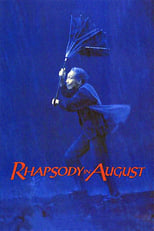
Title: Rhapsody in August
Released: May 25, 1991
Type: Movie
The story centers on an elderly hibakusha, whose husband was one of 80,000 human beings killed in the 1945 atomic bombing of Nagasaki, caring for her four grandchildren over the summer. She learns of a long-lost brother, Suzujiro, living in Hawaii who wants her to visit him before he dies.

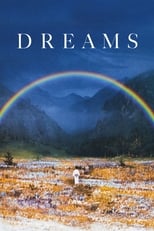
Title: Dreams
Released: May 11, 1990
Type: Movie
A collection of magical tales based upon the actual dreams of director Akira Kurosawa.

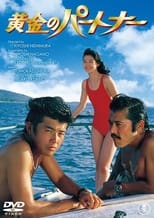
Title: Golden Partners
Character: Maid of the Kamiya family
Released: April 28, 1979
Type: Movie
A motorcycle cop and a freelance photographer, having learned the location of 1 billion yen's worth of the Imperial Navy's gold, team up to salvage it.

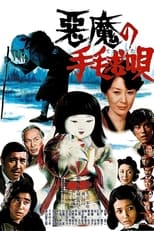
Title: Lullaby to Kill
Released: April 2, 1977
Type: Movie
Kôsuke Kindaichi, a somewhat peculiar private detective, visits a remote town. He meets a police detective and they start to investigate an old unsolved murder. Then some murders happen. Kindaichi must find out about the past in order to reveal who the murderer is.

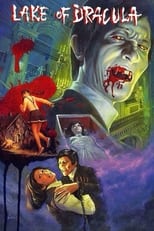
Title: Lake of Dracula
Character: Nurse A
Released: June 11, 1971
Type: Movie
A young girl suffers a terrifying nightmare of a vampire with blazing golden eyes. Eighteen years later, it is revealed to be a hellish prophecy when a strange package containing an empty coffin mysteriously turns up at a nearby lake.

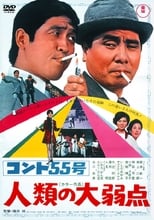
Title: Konto 55: Mankind's Weaknesses
Released: August 13, 1969
Type: Movie
A Toho film featuring the comedy duo Konto 55, (コント55号), comprised of comedians Kinichi Hagimoto and Jiro Sakagami.

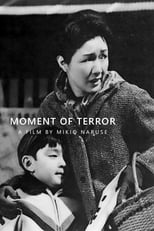
Title: Moment of Terror
Released: April 16, 1966
Type: Movie
When an only child is struck by a car and dies, the child's mother seeks vengeance against the driver in this thrilling drama. The car was driven by the wife of a company president who is having an affair. The woman's husband manages to buy silence about the incident, but the victim's mother discovers the identity of the driver. After she secures a job in the home of the company president and his philandering spouse, the woman plans to murder the couple's son when he reaches the age of her late son.

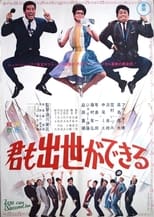
Title: You Can Succeed, Too
Released: May 30, 1964
Type: Movie
A group of friends try to find success in corporate Japan.

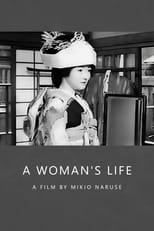
Title: A Woman's Life
Released: November 16, 1963
Type: Movie
A woman remember's her own marriage when dealing with the love life of her son.

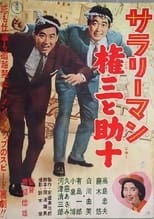
Title: Sararīman Gonza to Sukejū
Released: January 28, 1962
Type: Movie
1962 Japanese movie

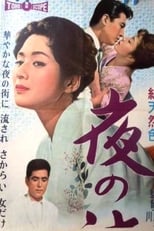
Title: The Lovelorn Geisha
Released: July 12, 1960
Type: Movie
A woman and her daughter are in love with the same man, a chef at the restaurant that the mother manages. He is slightly crippled from frostbite in his years in Siberian labor camps and considers himself "already dead."

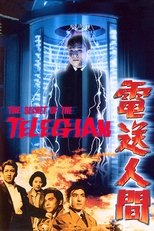
Title: The Secret of the Telegian
Character: Sightseeing woman (uncredited)
Released: April 10, 1960
Type: Movie
Men are being murdered by a psycho called "The Telegian," who uses a matter-transmitting device to locate his victims.

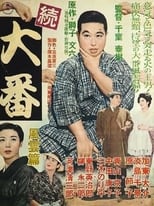
Title: Zoku Ôban: Fûun hen
Released: July 19, 1957
Type: Movie
Ushinosuke returns broke to his hometown, where everyone believes he's rich and successful.
Part two (of four) of the film adaptation of Bunroku Shishi's novel, Oban.

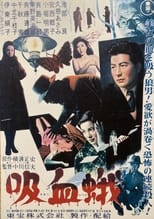
Title: The Vampire Moth
Character: Kawano
Released: April 11, 1956
Type: Movie
The story of a professional nude model stalked by a bizarre, unknown man wearing a hideous mask.


Title: The Blue Pearl
Released: August 3, 1951
Type: Movie
The Blue Pearl depicts the interplay between a young man from Tokyo and two ama (pearl divers; literally “women of the sea”) in a superstitious coastal town. Though raised within the same tradition-bound crucible, the two women – Noe and Riu – are portrayed as diametric opposites; the former meek but affectionate, the latter strong-willed but jaded by a tryst with metropolitan life.
